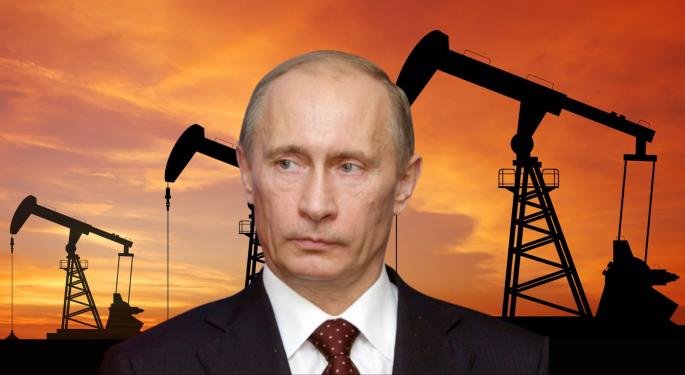G7 Sets $60 Per Barrel Price Cap On Russian Oil: Here's The Kremlin's Response
The Group of Seven (G7) nations have agreed to put a price cap of $60-per-barrel on Russian crude oil. On Friday, the European Union decided on the same price.
As per the new consensus, the cap will ban companies from shipping, insuring, or financing Russian oil unless the oil is sold below $60 a barrel.
On Saturday, Reuters reported that a Kremlin spokesman said Russia "will not accept" the price cap set by the G7. He added that Russia would further analyze the agreement and have a further response.
The U.S. and the G7 countries, including Canada, France, Germany, Italy, Japan, the U.K., and Australia, formed the agreement.
After holding out for a lower price cap for the last couple of days, Poland also agreed to the same price.
The European Commission initially proposed setting the cap between $65 to $70 a barrel.
In a statement, U.S. Treasury Secretary Janet Yellen said that the cap will benefit low and medium-income countries, which have experienced high energy and food prices over the last couple of years.
"With Russia's economy already contracting and its budget increasingly stretched thin, the price cap will immediately cut into Putin's most important source of revenue," Yellen added.
Also Read: Oil Stays Weak On China's Fresh COVID-19 Curbs: Supply News Trickles In Ahead Of OPEC+ Meet
With the new price cap, non-EU countries will continue importing seaborne Russian crude oil. Still, it will prohibit companies involved in shipping, insurance, and re-insurance from handling cargoes of Russian crude.
According to a senior U.S. Treasury Department official, the $60 per barrel price cap on Russian seaborne crude oil will keep global markets well supplied while "institutionalizing" discounts created by the threat of such a limit.
It remains to be seen how the G7 move will impact the Energy Select Sector SPDR Fund (ARCA: XLE), and some of the top companies in the ETF, such as Exxon Mobil Corp (NYSE: XOM) and Chevron Corp (NYSE: CVX).
Russian Urals crude traded at around $67 a barrel on Friday, while Brent Crude traded at around $85 a barrel.
"The E.U. agreement on an oil price cap, coordinated with G-7 and others, will reduce Russia's revenues significantly," European Commission President Ursula von der Leyen said in a tweet on Friday.
U.S. National Security Council spokesman John Kirby has said that "the cap itself will have the desired effect on limiting Mr. Putin's ability to profit off of oil sales and limit his ability to continue to use that money to fund his war machine."
Photo: Courtesy of Antonio Marín Segovia on flickr
© 2025 Benzinga.com. Benzinga does not provide investment advice. All rights reserved.
Posted-In: barrel price cap G7 Russian oilNews Commodities Top Stories Markets Best of Benzinga



